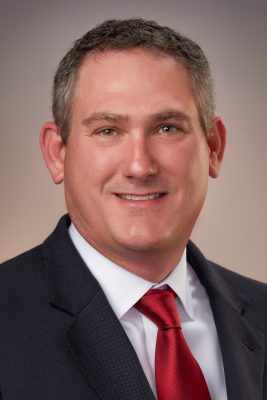For each issue since its inception nearly two years ago, FlexPack VOICE® has hosted a question-and-answer segment with an industry leader. In this issue, we interview Russell Grissett, vice president and general manager of Sonoco Flexibles and an executive committee member at large for the Flexible Packaging Association (FPA).
Founded in 1989, Sonoco is a global provider of consumer, industrial, health care, and protective packaging. With annualized net sales of approximately $5.2 billion, the company has 19,000 employees working in more than 300 operations in 34 countries. Sonoco serves some of the world’s best-known brands in about 85 nations, Grissett points out. He has been with Sonoco for more than 28 years, having started there after graduation from Auburn University, where he earned a degree in industrial engineering.
“I spent the first one-third of my career in operations roles as a shift supervisor, plant accountant, and maintenance and production manager before moving into sales and marketing roles,” he says. “And then, prior to moving to flexibles, I was the GM of our protective packaging division and our ThermoSafe® divisions. Sonoco has a very good program of exposing our managers to multiple disciplines and divisions during their career.”
FlexPack VOICE®: Tell us a little bit about your views on the current state of the industry.
Russell Grissett: The demand for flexible packaging continues to grow both inter-nationally and domestically as a versatile packaging format that provides excellent product protection, portability, and durability for direct-to-consumer channels and low environmental impact. With this continued growth, our industry is facing challenges with securing raw materials to keep up with demand, obtaining and retaining a skilled workforce, and increasing output and efficiency of operations. Traditionally, flexible packaging has been a more sustainable choice when compared to rigid plastic alternatives, but our industry should continue to advance as it pertains to packaging end of life. The continued development of packaging that is designed to be recycled or composted and the investment in the infrastructure to make this a reality is central to the next evolution of the flexible packaging industry.
FPV: Sustainability is a big topic. What is the industry doing well, and where does it need to do better in this area?
RG: The sustainability focus has shifted to end-of-life solutions as we seek to increase the volume of flexible packaging that is designed to be recycled or composted. With recyclable flexible packaging options being limited to mono-material PE structures that can qualify for store drop-off collection, the industry is progressing quickly to develop new PE films and improved converting processes to increase the viability of all PE solutions without compromising product protection, shelf life, or merchandise appeal. While it might be a challenge to satisfy the demands of all applications, we should continue to develop all PE solutions that are currently recyclable. And we should continue to improve the infrastructure to support new collection, sortation, and advanced recycling methods for other materials.
“The continued development of packaging that is designed to be recycled or composted and the investment in the infrastructure to make this a reality is central to the next evolution of the flexible packaging industry.”
FPV: What has been the approach of your company?
RG: Within Sonoco Flexibles, we developed a suite of solutions under our EnviroFlex™ brand that addresses sustainability through designing to be recycled and containing recycled content. As a company, Sonoco has taken a holistic approach to sustainability that begins with how we source our raw materials, how we operate our factories around the world, and how the packaging materials we supply throughout the world reach the appropriate end of life.
FPV: How did your company handle the call for vaccine mandates?
RG: Our primary goal has been to keep our employees safe and healthy to the best of our abilities throughout the COVID-19 pandemic. This includes protecting our employees by taking action such as requiring masks, distancing where possible, and offering flexible work schedules, etc., but also preventing our employees from being so distracted with the COVID concern that they suffer other injuries in the workplace. We believe that vaccines are a way to protect from severe illness and have encouraged our employees to be vaccinated.
FPV: The details of a federal infrastructure bill will take a while to unfold. Regardless, what should infrastructure measures include involving recycling long term, especially as they would pertain to plastics?
RG: The success of recycling begins with accessibility and adoption. Today the access to recycling collection for plastics is limited. But, even in areas where recycling infrastructure such as store drop-off collection for flexibles is available, adoption rates are too low. Through efforts of the public and private sectors, we need to increase access to recycling by improving material sortation through recovery facilities, allowing for more plastics—including flexibles—to be recycled through curbside collection.
